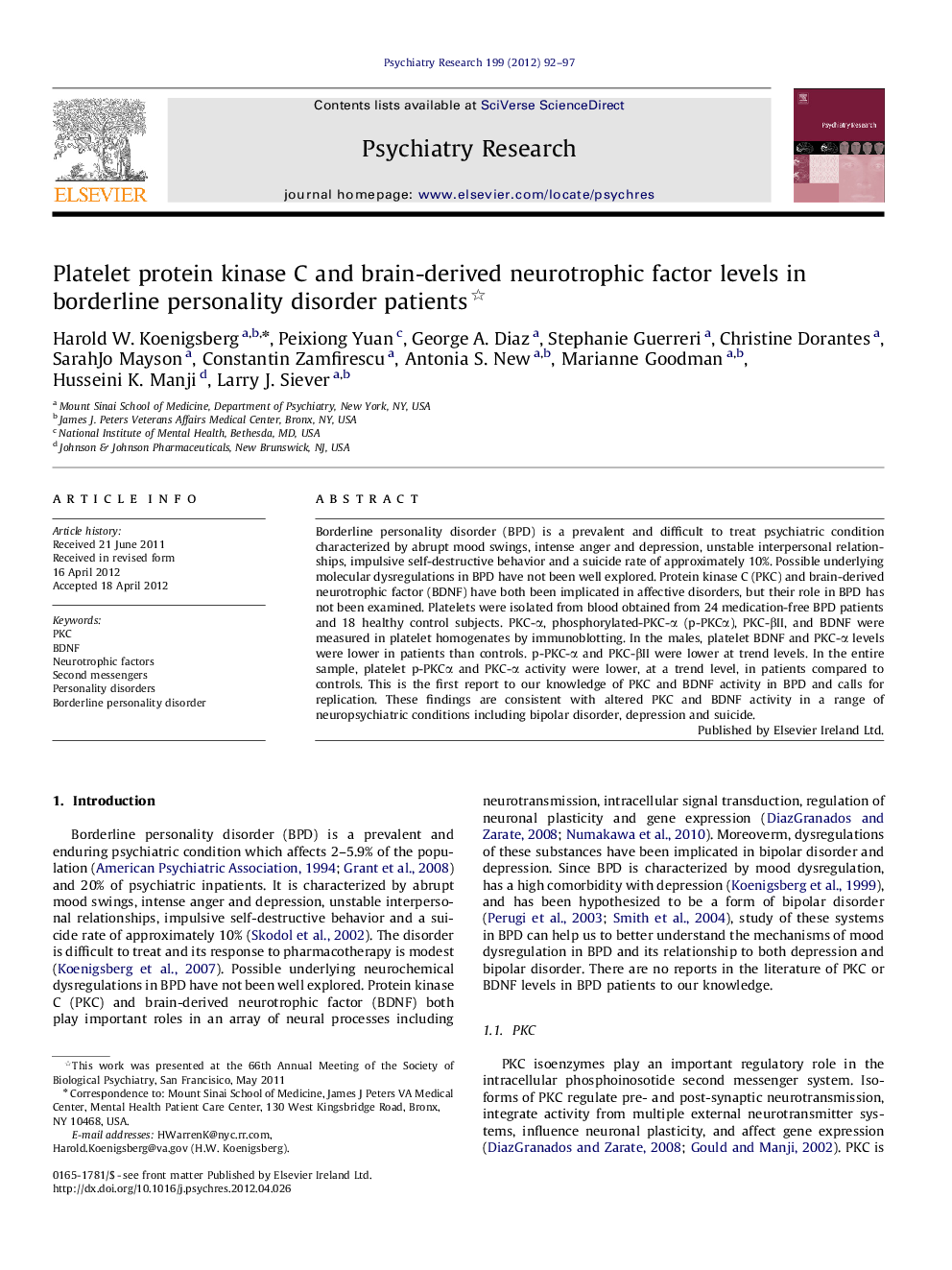| Article ID | Journal | Published Year | Pages | File Type |
|---|---|---|---|---|
| 333551 | Psychiatry Research | 2012 | 6 Pages |
Borderline personality disorder (BPD) is a prevalent and difficult to treat psychiatric condition characterized by abrupt mood swings, intense anger and depression, unstable interpersonal relationships, impulsive self-destructive behavior and a suicide rate of approximately 10%. Possible underlying molecular dysregulations in BPD have not been well explored. Protein kinase C (PKC) and brain-derived neurotrophic factor (BDNF) have both been implicated in affective disorders, but their role in BPD has not been examined. Platelets were isolated from blood obtained from 24 medication-free BPD patients and 18 healthy control subjects. PKC-α, phosphorylated-PKC-α (p-PKCα), PKC-βII, and BDNF were measured in platelet homogenates by immunoblotting. In the males, platelet BDNF and PKC-α levels were lower in patients than controls. p-PKC-α and PKC-βII were lower at trend levels. In the entire sample, platelet p-PKCα and PKC-α activity were lower, at a trend level, in patients compared to controls. This is the first report to our knowledge of PKC and BDNF activity in BPD and calls for replication. These findings are consistent with altered PKC and BDNF activity in a range of neuropsychiatric conditions including bipolar disorder, depression and suicide.
